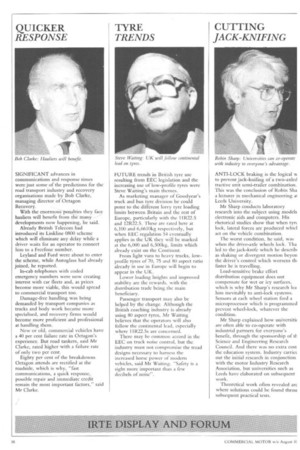QUICKER RESPONSE
Page 20

If you've noticed an error in this article please click here to report it so we can fix it.
SIGNIFICANT advances in communications and response times were just some of the predictions for the road transport industry and recovery organisations made by Bob Clarke, managing director of Octagon Recovery.
With the enormous penalties they face hauliers will benefit from the many developments now happening, he said.
Already British Telecom had introduced its Linkline 0800 scheme which will eliminate any delay while a driver waits for an operator to connect him to a Freefone number.
Leyland and Ford were about to enter the scheme, while Autoglass had already joined, he reported.
In-cab telephones with coded emergency numbers were now creating interest with car fleets and, as prices become more viable, this would spread to commercial transport too.
Damage-free handling was being demanded by transport companies as trucks and body work became more specialised, and recovery firms would become more proficient and professional at handling them.
New or old, commercial vehicles have a 40 per cent failure rate in Octagon's experience. But road tankers, said Mr Clarke, rated higher with a failure rate of only two per cent.
Eighty per cent of the breakdowns Octagon attends are rectified at the roadside, which is why, "fast communications, a quick response, possible repair and immediate credit remain the most important factors," said Mr Clarke.




































































